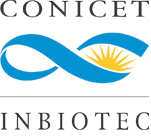Journal of King Saud University - Science, Volume 32, Issue 1, January 2020, Pages 867-873, 2019
Abstract
Trichoderma fungi are considered as suitable biofertilizers, since they could increase the efficiency of the use of nutrients in plants and are used as biocontrol agents against plant pathogen. The aim of this study was to characterize a set of Trichoderma strains isolated from horticultural and near-pristine soils from the Argentine Pampas, and to evaluate their potentiality as a growth promoter and as a biocontroller of Fusarium wilt disease on tomato. Nineteen collected strains, identified as T. brevicompactum, T. gamsii and T. harzianum, were tested for their ability to produce the auxin indole 3-acetic acid (IAA), solubilize phosphate and biocontrol F. oxysporum. Twelve strains reduced growth of pathogenic fungus over 50% and four of them (named FCCT 16, FCCT 58, FCCT 199-2 and FCCT 363-2) exhibited IAA highest production (ranging 13.38–21.14 µg/ml) and were able to solubilize phosphate (ranging 215.80–288.18 µg/ml of calcium phosphate). Tomato plants inoculated with those four strains increased chlorophyll content, shoot length, fresh and dry weight of shoot and roots, and reduced F. oxysporum wilt disease between 10 and 30%. On the basis of our results, we conclude that soils of the Argentine Pampas harbor Trichoderma strains with beneficial dual effects which could be of interest for the development of commercial products.
Keywords
Biological control, Phosphate solubilizing fungi, Phytohormone,Plant growth promotion, Tomato, Trichoderma
